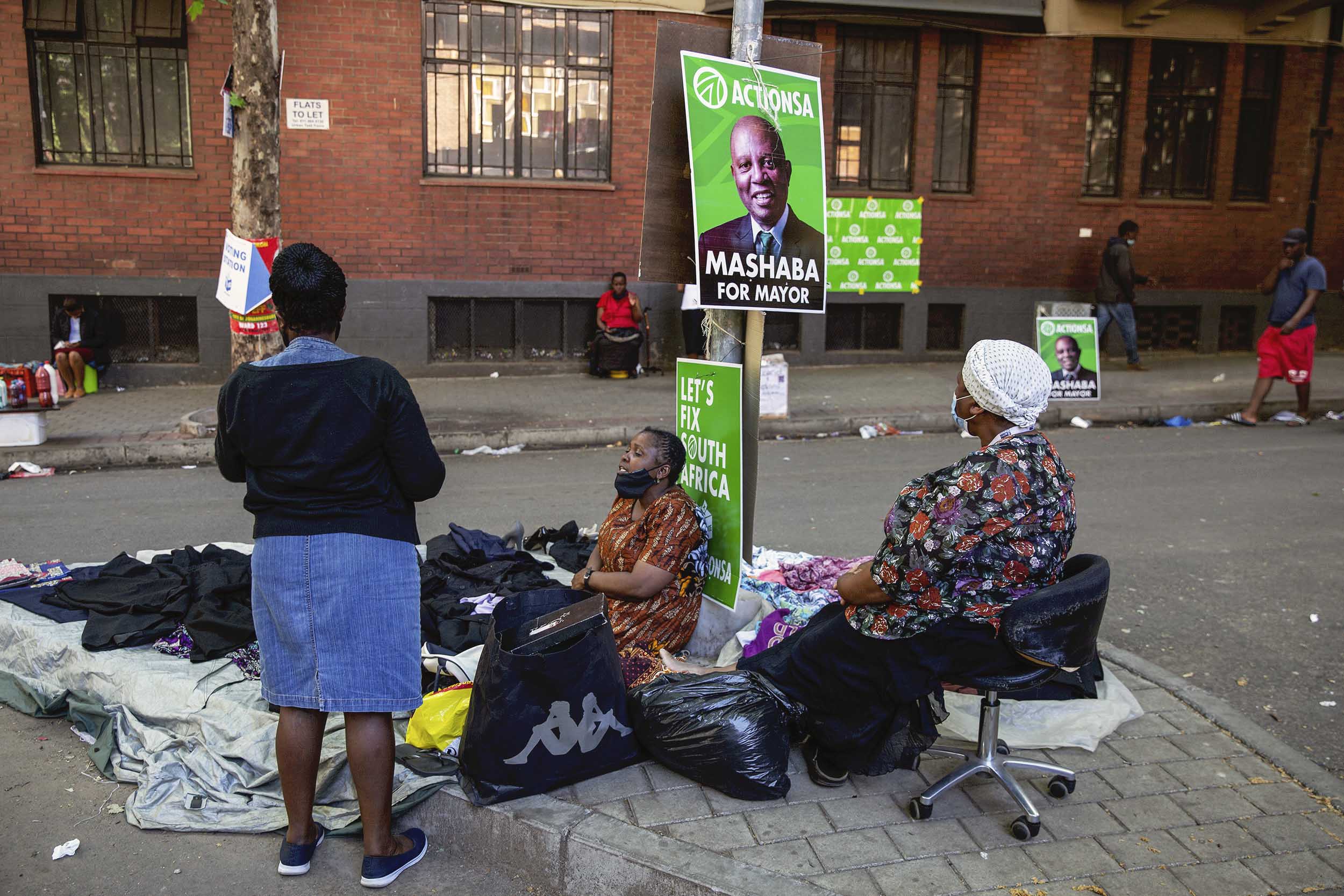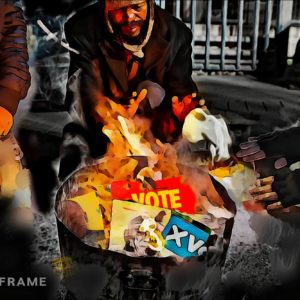The wheel turns again
This week’s election marks significant shifts in electoral politics. As support for the ANC and the DA ebbs, the Left is absent and a new Right slouches into plainer view.
Author:
5 November 2021

There have been two decisive turning points for South Africa this year. The first was the riots in July. The second has been the election this week. The riots showed that there will not be permanent consent for a social order that excludes the majority from any real prospect of living viable lives. The local government election has shown that, across the board, the vast majority of people do not trust the established political parties.
While 42.6 million people were eligible to vote, only 26.2 million registered to do so. About 12 million actually voted, a little over 28% of potential voters. The ANC won the support of only 25% of eligible voters nationally. In many councils, the most successful party will, in the end, govern through fractious and unstable coalitions with the support of about 15% of the electorate.
Related article:
This will be rule with the support of a minority, and that is a fact that needs to be engaged with due seriousness. But it is not consequent to apathy. On the contrary, it is a spectacularly powerful indictment of all the major parties on the ballot. We should recall that there are venerable and both organised and unorganised histories, traditions and contemporary practices of boycott, abstentionism, disobedience, obstruction, recalcitrance, flight, and explicit and implicit rejection of the pieties of the ruling class. The widespread decision not to vote will have had different individual motivations, but considered as a general phenomenon it has deeply political meaning and implication.
It is hardly a surprise that after the degeneration of the ANC into a full-blown kleptocracy under Jacob Zuma, the rapid escalation of impoverishment and unemployment, everyday experiences of an often cynical, predatory, violent and sadistic state, and the visible and continuing material collapse of many towns and cities, only about a quarter of citizens remain willing to vote for the ANC.
Widespread disillusionment
In many societies, a party unable to stem a degeneration as precipitous as that suffered by the ANC would result in a massive swing to its leading rivals. But neither the DA nor the EFF were able to capitalise on the contempt in which the ANC is increasingly held. The DA’s turn to the Right, and the regularity with which it shoots itself in the bloody remains of its flat feet, has seen its support decline. The EFF has not been able to make significant advances and won only a shade over 10% of the national vote and the support of just 6% of all eligible voters.
City Press editor-in-chief Mondli Makhanya’s recent description of the EFF as “a carnival of lies, recklessness and buffoonery” is apposite. Nonetheless, on paper, a populist party that dominates social media; has huge and wildly disproportionate access to the public sphere via a commercial media often recklessly seduced by sensationalism; offers alienated young men a uniform, an identity and the opportunity to perform power; and promises jobs in the context of a staggering level of youth unemployment should have stormed the hustings. The fact that, unlike in so much of the world, the vast bulk of South Africans are not swayed by this kind of populism suggests a political maturity absent in many other societies.
Related article:
However, if this is the case, that maturity is certainly not uniform. There were two kinds of beneficiaries of the lack of confidence in the major parties, one alarming and the other with mixed potential. There has been a clear swing to the Right – evidenced most strikingly by the success of Herman Mashaba’s ActionSA, with its market fundamentalism and xenophobia – but also a set of ethnically and racially based parties such as the Inkatha Freedom Party, the Freedom Front Plus and the Patriotic Alliance, which is every bit as xenophobic as Mashaba’s party.
The other significant response to the turning away from the ANC and the DA, and the failure of the EFF to achieve significant growth, is the success of many independent candidates and locally based organisations. Their politics and likely adherence to principle vary widely, but there are interesting experiments and a good number of new councillors who are genuinely respected in their communities and offer the prospect of a more bottom-up form of electoral politics freed from the dead hand of party bosses. This is a potential avenue into the beginnings of some grounds for a limited degree of rational optimism.
Failure of the Left
Conditions could hardly have been more propitious for an electoral project from the Left. The liberation struggle brought many of the ideas of the Left into the common sense of political culture, and with a devastating social crisis that is mostly ignored by elites, a politics that could effectively speak to the lived experience and aspirations of the working class and impoverished people has the potential to be explosively popular.
However, the parties of the Africanist and Black Consciousness-inflected Left on the ballot, namely the Pan Africanist Congress and the Azanian People’s Organisation, failed and failed dismally. With no credible progressive force in power in local government at any sort of scale, there are no credible grounds for optimism about local government being able to reconstitute possibilities for social hope, let alone to make real advances. But while this must be confronted clearly and unflinchingly – a pessimism of the intellect is essential – the view that this election would be the penultimate step towards an apocalypse is entirely overblown. This is another return in the endless return of the old colonial paranoia about imminent doom. We may well continue our decline – with more and more broken roads, promises and lives – but life, and elections, will go on.
Related article:
The day before the election, Durban political analyst Imraan Buccus made the point that outside of the non-governmental organisation and academic Left, which has significant access to public voice but no mass constituency, there are a number of explicitly Left organisations with large constituencies. He puts the combined members of Abahlali baseMjondolo, the National Union of Metalworkers of South Africa and the South African Communist Party at over 800 000. If we add in the larger unions in the South African Federation of Trade Unions, such as the Food and Allied Workers Union, along with some of the unions affiliated to the Congress of South African Trade Unions, there is certainly significant popular participation in a set of organisations that, in principle if not always in practice, are committed to the core values of the Left. There could certainly be a base for an electoral politics of the Left within some combination of the politically credible elements in this milieu.
In the coming days we’ll get a sense of the results of the negotiations to form what are almost certain to be unstable coalitions, and be able to draw some conclusions about their political character and possible consequences. But right now it is entirely clear that there has been a mass rejection of the dominant political parties, and the professional political class as a whole. Building democratic alternatives from within the lifeworlds and struggles of the oppressed at sufficient scale to achieve real change is an essential task for the road ahead.



